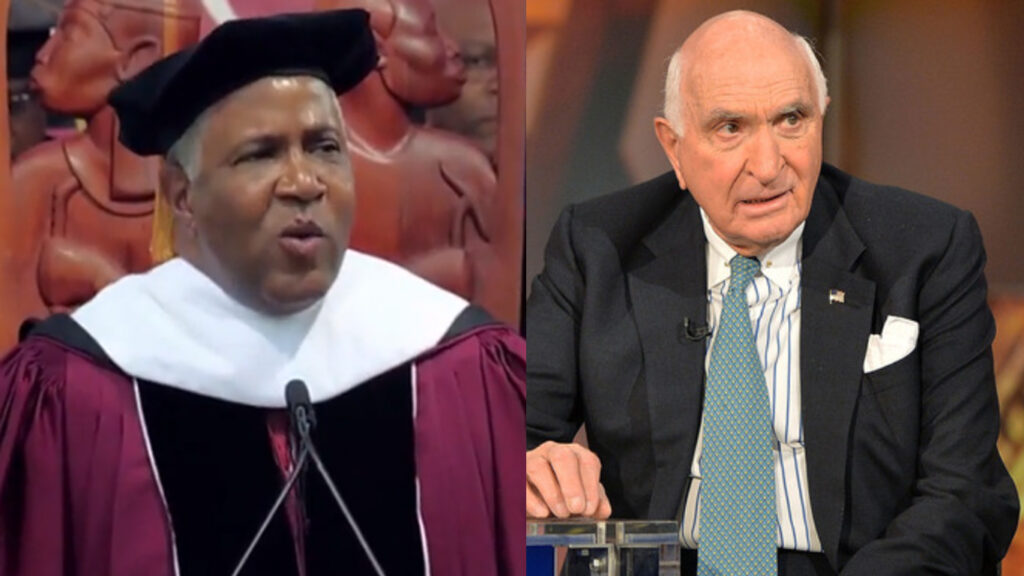It is easy to take the sentimental view when we see billionaires and rich people do kind things. I think many times said acts are predatory on us all. Why? I will explain after the narrative.
I was talking to a friend about our form of capitalism and our supposed meritocracy a few months ago. She is brilliant and has excelled in corporate America. She did not take it kindly when I told her while she is deserving of the job, it is essential to note that the reality is that successful people in the corporate domain are chosen to join the success club. And merit is not necessarily the compelling factor.
I did not say this as a pejorative. After all, after self-analysis, I can show that was also my reality in corporate America and to some extent with the software company I founded.
In her case, many other competent applicants were likely less capable, just as capable, and more capable who did not make the final cut. The same applies to me, having been chosen to work at the various companies I worked for throughout my short career working for the corporation.
I remember being anti-Affirmative Action when I left the University of Texas because as someone very competent in my craft, engineering, I did not want any assumptions that intimated that somehow that law was instrumental in me working for corporate America. As I matured mentally and reduced the size of my ego (not pride), I realized at every single one of my corporate jobs; Affirmative Action was likely the deciding factor. When looking back in time, it is not hard to see that I was surrounded almost entirely by those who did not look like me.
Even though I created my own software company, went through tribulations others would not have had to go through, on further analysis, it is humbling to have to come to the same conclusion. My products and services were never the cheapest. Many factors, some unbeknownst to me, went into being chosen.
Many people, some more competent and some less so got chosen for success. The thing is though I do not know the numbers, I would wager based on the distribution charts that most are not. Proportionally, most are underperforming their relative comparative worth to those who have success for having been chosen.
I gave the rather long preamble to provide some context. This thought is not coming from a position of sour grapes but from one that hopes we understand the random nature of success and opportunity.

Everybody applauded billionaire Ken Langone for providing tuition-free medical school at New York University. Now the same applies to billionaire Robert F. Smith who is paying off the student loans for the 2019 Morehouse College graduates.
So why am I not impressed? First, let me be clear. These are two great businessmen who followed our economic rules to get extremely wealthy. That said, these guys did not develop their wealth from creating any products or services, but they used the financial game to capitalize on the work and worth of others by manipulating financial instruments (e.g., Smith was an engineer who does own patents, but his wealth does not seem to be related to any of them.)
It is a nice gesture, however painless but with huge positive notoriety that accompanies these gifts. They gave a group of students a running start ahead of the millions who no one afforded them that opportunity. Those kids became the chosen few.
While I am happy for those chosen students, I feel for those who worked very hard, some who will likely fail in life because no one afforded them the opportunity.
None of us who are successful in life should have any presumption of superiority. Success in our economic system is only partially merit-based. And that may be a smaller piece than many of us would want to admit.
For many of these reasons, anyone who claims success owes a high degree of humility to society at large. Yes, many of us work very hard but working hard, and smart does not guarantee success.
There is a moral imperative that comes from the above reality. Because we do not have a mechanism to guarantee one’s worth to society with one’s economic success, a stable baseline safety net is the right governmental policy.
No one can guarantee one’s success. However, we can ensure that irrespective of the failure of our economic systems, we can live a reasonably satisfactory life.
Viewers are encouraged to subscribe and join the conversation for more insightful commentary and to support progressive messages. Together, we can populate the internet with progressive messages that represent the true aspirations of most Americans.